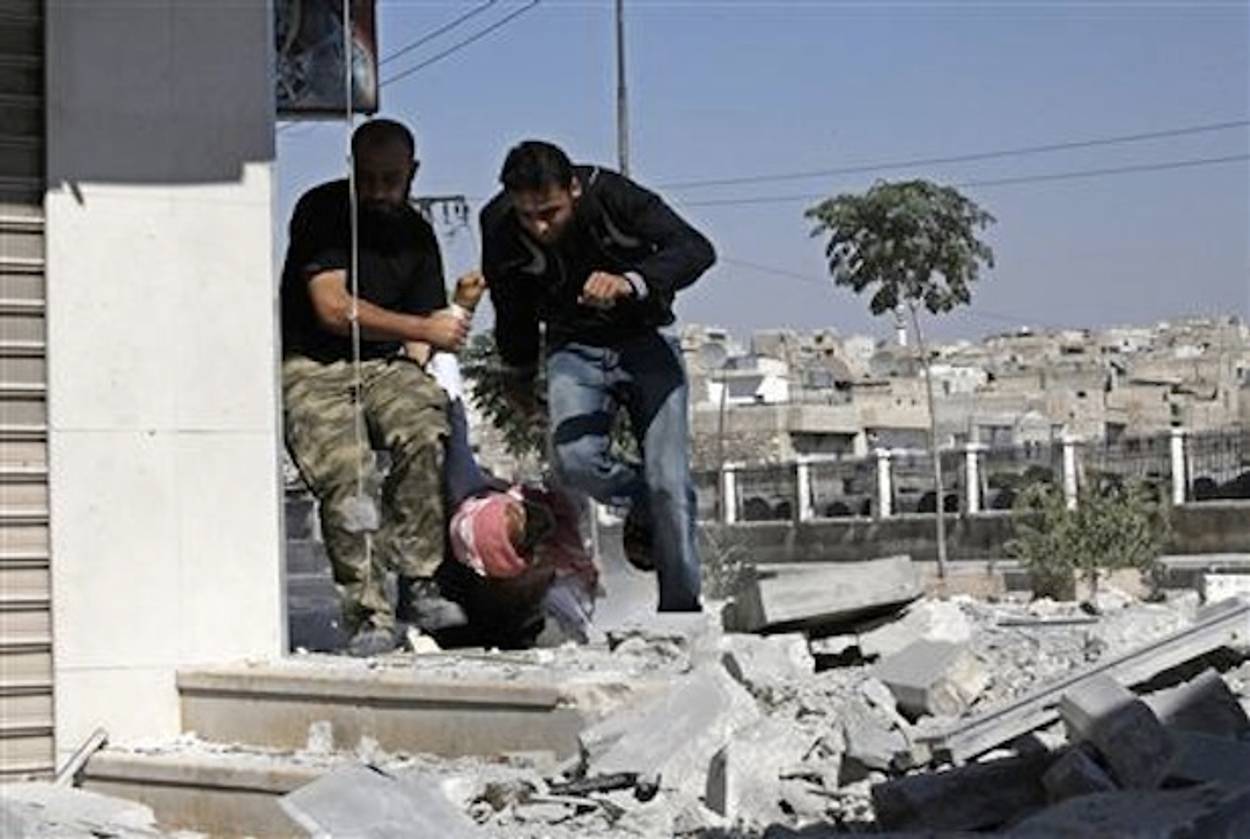Ahmadinejad’s Strange U.N Speech
The Iranian leader went a different route yesterday




For seven years running, Iranian President Mahmoud Ahmadinejad’s speeches to the United Nations have been a spectacle. The inveighing and the provoking. Mere city blocks from Ground Zero, Ahmadinejad has whispered conspiracy about American involvement in the September 11th attacks and also used the forum to deny Israel’s right to exist. Last year, in something of a ritual 27 delegations walked out of his speech.
Upon his arrival in New York, there were signals that the Iranian leader’s eighth and final speech to the United Nations would be something of a hate-fueled swan song.
“Over the past couple of days, we’ve seen Mr. Ahmadinejad once again use his trip to the U.N. not to address the legitimate aspirations of the Iranian people, but to instead spout paranoid theories and repulsive slurs against Israel,” said Erin Pelton, a spokeswoman for the U.S. Mission to the United Nations.
Earlier this week, right on cue it seemed, Ahmadinejad said that Israel “has no roots” in the Middle East and constitutes an unnatural colonial imposition. But when he took to the podium yesterday–with Canada, the United States, and Israel already absent–the Iranian leader took a different route.
In a long-winded bluster, he spoke about a “new world order” where major powers were gone, leaving most of the normal fury out and incorporating different themes such as philosophy and religion, including the abuse of the image of women.
“Woman’s sublime role as heavenly being has been abused,” he said, by the “moneyed powers” that now rule the world but that would be overcome under his new world order.
Yes, he did reproach “uncivilized Zionists” for “threatening military action against our great country,” but he also did not mention his country’s nuclear program or the international campaign to stop it. In the coming days, it’s likely we’ll see some analysis of why his tune seemingly changed from broadly defiant to oddly philosophical.
What seems more worth nothing is that while he spoke in Turtle Bay, the uprising in Syria raged on, suffering its bloodiest day in the eighteen-month-long conflagration with over 300 people (mostly civilians) killed, many with Iranian weapons.
Ahmadinejad says Israel has “no roots” in Middle East [Fox]
U.S. Walks Out of Speech After 9/11 Conspiracy Theories [HuffPo]
Iran’s Ahmadinejad touts ‘new world order’ not led by ‘arrogant’ powers [CSM]
Adam Chandler was previously a staff writer at Tablet. His work has appeared in the New York Times, the Wall Street Journal, the Atlantic, Slate, Esquire, New York, and elsewhere. He tweets @allmychandler.